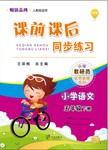题目内容
16.Intense physical exercise is not the only way to better health.Studies show that walking several times a week can lower the risk of many diseases.They include heart disease,stroke,diabetes,bone loss,arthritis (关节炎),and depression.Walking also can help you lose weight.Fast walking is good for the heart.It lowers the blood pressure.It raises the amount of good cholesterol (胆固醇) in the blood.Researchers say walking can sharply reduce the risk of suffering a heart attack.Studies have also shown that walking for 30 minutes a day can delay and possibly prevent the development of diabetes.People who are overweight have an especially high risk of developing this disease.
Walking strengthens the muscles and builds up the bones that they are attached to.Studies show that walking could decrease the risk of developing osteoporosis (骨质疏松症).Walking can also help ease the pain of arthritis in areas where bones are joined.This is because walking strengthens the muscles around the bones.
Experts say walking is one of the safest ways of exercise.There is a low risk of injuries.So it is good for people who are starting an exercise program for the first time and for older people.
A walking program is easy to start.You should wear loose clothes and good shoes.There are shoes that are designed especially for lots of walking.
How fast should you walk?For the best effect,doctors say you should walk fast enough to cause you to breathe hard.Yet you should still be able to talk.Let your arms move freely while you walk.
There are no rules to starting a walking program.You might walk short distances.Or you might walk up hills to strengthen your leg muscles.Health experts say you can gain the most from a walking program if you walk at about five kilometers an hour for 30 minutes a day.You should do this about five times a week.
| Walking to 76keep.Fit | ||
| 77Effects/Advantages/Benefits.of walking | Superiorities to other ways of exercise | Tips to walkers |
| ★Reducing the risk of a heart attack ★Lowering the blood pressure ★Raising good cholesterol | Being 80.than many other ways of exercise,especially for beginners or the 81elders. | Wear loose clothes and good shoes. |
| ★Controlling the development of diabetes ★Helping you 78lose.weight | Walk fast enough to cause you to breathe with 83difficulty. but you are still able to talk. | |
| Walk with your arms 84moving. freely. | ||
| ★Strengthening the muscles 79building.up the bones | Being easy to start 82without.rules | Walk at a 85speed/rate. of about 5 kilo- meters an hour for 30 minutes a day and 5 times a week. |
| Lowering the risk of other diseases,such as stroke,depression,etc. | ||
分析 本文主要讲述散步的好处和方法.
解答 76.keep 77.Effects/Advantages/Benefits 78.lose 79.building 80.safer 81.elders 82.without 83.difficulty
84.moving 85.speed/rate
76.keep 根据文章第一 段Walking also can help you lose weight. 可知散步能帮助你减肥,有利于保持健康.
77.Effects/Advantages/Benefits 根据本题下面的内容可知散步的好处和优势.
78.lose 根据文章第一 段Walking also can help you lose weight. 可知散步能帮助你减肥.
79.building 根据文章第三 段Walking strengthens the muscles and builds up the bones that they are attached to. 可知散步可以锻炼肌肉和增强骨质.
80.safer 根据文章第四 段Experts say walking is one of the safest ways of exercise. 可知专家说散步是锻炼中最安全的方式之一.
81.elders 根据文章第四 段So it is good for people who are starting an exercise program for the first time and for older people.可知散步不仅对初学者有好处,而且对老人也有好处.
82.without 根据文章最后一段There are no rules to starting a walking program. 可知开始散步是没有规则的.
83.difficulty 根据文章倒数第二 段For the best effect,doctors say you should walk fast enough to cause you to breathe hard. 可知医生建议你应该走的足够快让你呼吸困难.
84.moving 根据文章倒数第二 段Let your arms move freely while you walk.可知让你的胳膊自由的甩动.
85.speed/rate根据文章最后一 段Health experts say you can gain the most from a walking program if you walk at about five kilometers an hour for 30 minutes a day. 可知健康专家说你最好以每小时5公里的速度散步.
点评 任务型阅读首先是一篇阅读理解.为了确保对文章准确深刻理解,同时提高解题速度,最终能顺利完成该项任务,考生必须做到:
1.注重平时词汇记忆,熟练掌握考纲词汇中常用词汇的词性转化.
2.了解文章的结构,把握全篇的文,即句与句、段与段之间的逻辑关系.
3.加强限时阅读训练,尤其是词数在400~550之间的较长篇幅的阅读训练.
4.系统训练,循序渐进,最终达到相应的解题能力要求.

 教学练新同步练习系列答案
教学练新同步练习系列答案 课前课后同步练习系列答案
课前课后同步练习系列答案 课堂小作业系列答案
课堂小作业系列答案 黄冈小状元口算速算练习册系列答案
黄冈小状元口算速算练习册系列答案Why would you want to become your own best friend?There are a number of benefits of creating your own support system from within rather than relying on your partner,friends or family to be there for you when you're suffering.We all have it in us to give ourselves what we need,without seeking it from outside.(33)G Here's how to become your own best friend.
1.Be nice to yourself
The first step in becoming a friend to yourself is to treat yourself like you would treat a friend.(34)E Start by accepting your good qualities,talents and abilities and begin to appreciate yourself.
2.Imagine how you would support a friend in the same situation
Think about a loved one,a friend,a family member,or someone dear to you and imagine that they are in the same situation you are facing.(35)F Then consider how to
best offer help and advice to them.Allow yourself to feel supported,and give yourself what you need.
Write down the words that you would say to your greatest friend and then say them gently to yourself.
3.(36)A
Following the theme of considering how you would help a dear friend,you need to start taking your own advice and putting your own needs first.Do you need a day off from work?(37)C
Whatever it is that you need,allow yourself to put it at the top of the list rather than the bottom.Use these methods to become your own best friend and start being there for yourself!
| A.Honor your needs B.Believe in yourself. C.A long hot bath? D.Help them first and then they will help you. E.That means that you need to stop being doubtful of yourself. F.Think about how they're struggling,suffering with this problem. G.Isn't it far better to know how to support yourself in times of need? |
Survey Results
| Question | Answers | Percentage |
| Have you ever jaywalked across a street at a red traffic light? | Yes | 71% |
| No | 29% |
| Reasons for jaywalking | Percentage |
| 1.Following others | 24% |
| 2.Saving time | 48% |
| 3.Seeing empty streets | 28% |
注意:1.开头已为你写好. 2.词数不少于60.
Dear Editor,
I'm Li Hua,from Class 1,Senior 2.I did a survey among my classmates about jaywalking recently._______________________________________________________________________
_______________________________________________________________________________
_______________________________________________________________________________
_______________________________________________________________________________
_______________________________________________________________________________
Yours,
Li Hua.
| A. | not to do | B. | not to | C. | not do it | D. | do not do |
| A. | until | B. | before | C. | unless | D. | since |
| A. | told | B. | have told | C. | have been told | D. | are being told |